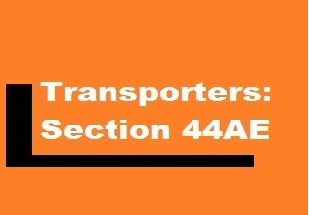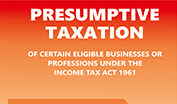Presumptive Taxation in India: Simplifying Taxes for Small Businesses
Taxation is an essential component of any country’s economic system, providing the necessary revenue for the government to fund public services and infrastructure. In India, where the small business sector plays a significant role in driving economic growth and employment, the concept of presumptive taxation has emerged as a simplified tax regime. Designed specifically for small businesses, this system aims to reduce the compliance burden and promote ease of doing business. In this article, we will explore the concept of presumptive taxation in India and its benefits for small business owners.
Presumptive taxation is a method of calculating and paying taxes based on a presumed income or profit percentage. It offers an alternative to the traditional system of maintaining meticulous accounting records and undergoing complex tax assessments. Introduced under Section 44AD, 44ADA, and 44AE of the Income Tax Act, 1961, presumptive taxation primarily targets small businesses and professionals with a turnover below a specified threshold.

Eligible businesses include individuals, Hindu Undivided Families (HUFs), and partnerships with a total turnover or gross receipts of up to Rs. 2 crore in a financial year. These businesses can opt for the presumptive taxation scheme and declare their income as a percentage of total turnover, thereby avoiding the need for detailed bookkeeping.
Professionals such as doctors, lawyers, engineers, architects, accountants, and other specified professionals can avail of the presumptive taxation scheme under Section 44ADA. They can declare 50% of their gross receipts as their taxable income, eliminating the requirement for maintaining books of accounts. Gross Turnover upto Rs. 50 Lakhs and From FY 2023-24 Rs.75 Lakhs Per Annam.


Section 44AE is applicable to owners of goods carriage vehicles who can determine their income based on the number of vehicles owned and utilized for business purposes. A fixed presumptive income per vehicle is calculated, taking into account the load capacity and distance covered, thereby simplifying the tax calculation process. applicable for upto 10 Vehicles Owned Per year
Benefits of Presumptive Taxation
- Reduced Compliance Burden: Presumptive taxation significantly reduces the compliance burden for small businesses and professionals. By eliminating the need for maintaining detailed accounting records and undergoing extensive tax assessments, this system saves valuable time and resources.
- Simplified Tax Calculation: Under the presumptive taxation scheme, taxpayers can determine their taxable income based on a predetermined percentage of their total turnover or gross receipts. This simplicity makes tax calculation more straightforward and less prone to errors.
- Presumptive Income Benefits: The presumed income percentage set by the government is generally lower than the actual profit margins earned by small businesses and professionals. This implies that taxpayers can enjoy the advantage of a lower tax liability, enhancing their overall profitability.
- Cash Flow Management: By opting for presumptive taxation, small businesses can manage their cash flow effectively. The tax liability is calculated based on turnover, eliminating the need to wait for actual realization of payments before paying taxes.
- Increased Taxpayer Base: Presumptive taxation has encouraged more small businesses and professionals to enter the formal tax system. The simplified compliance requirements make it easier for previously unregistered entities to join the mainstream economy, fostering transparency and accountability.
NEED SUNMARG HELP?

